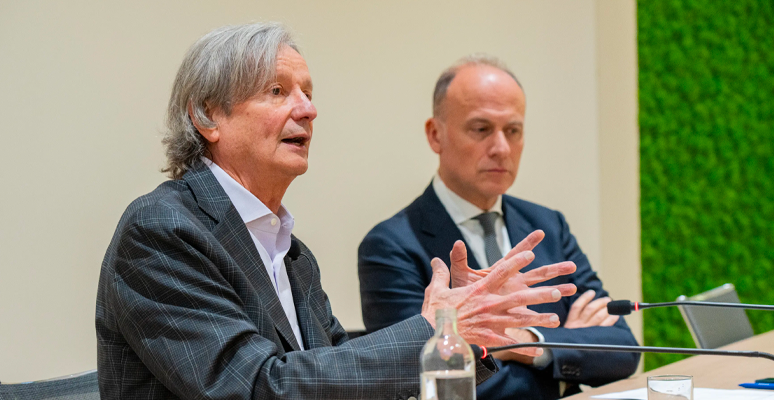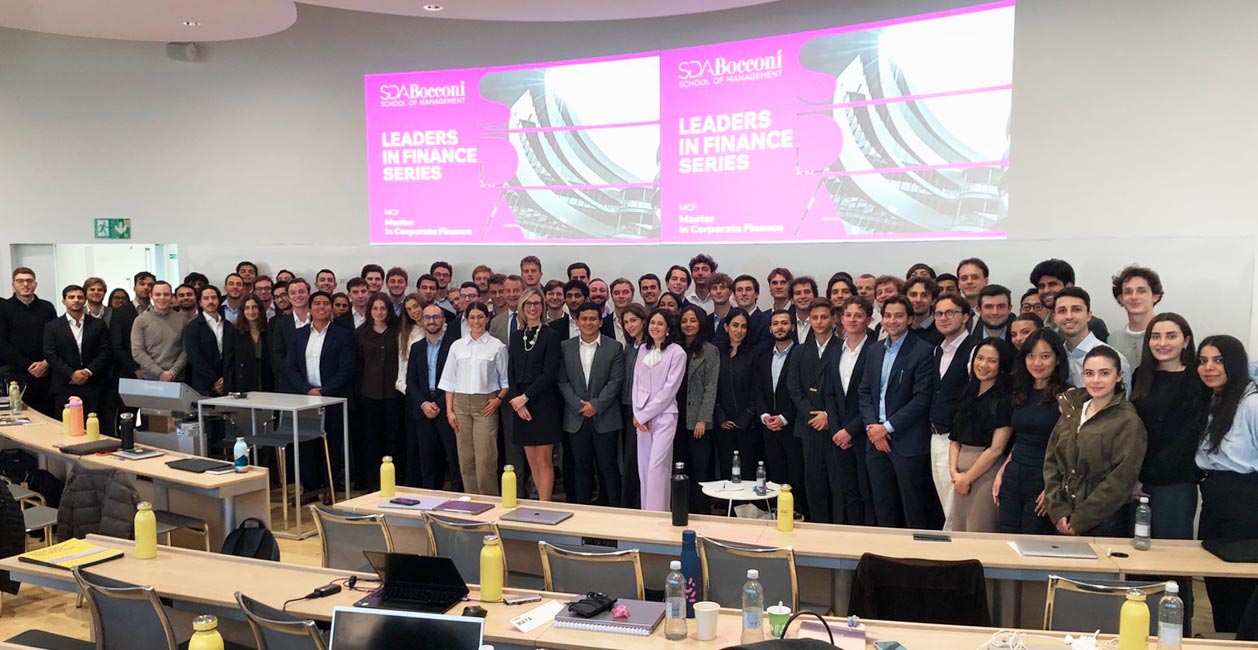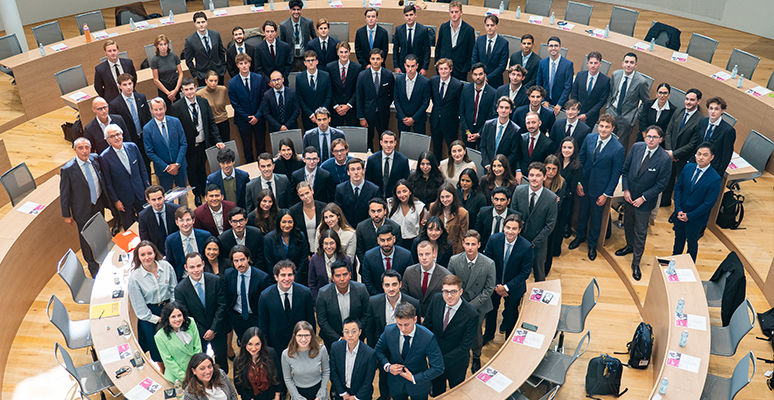“You are all smart, driven, and focused, but remember, there’s more to life than just this. All the successful people I’ve met have an open mind, understand that there’s life beyond work, and can talk about anything—not just the spreadsheet in front of them.”
This was Mario Giannini’s advice to participants of the Master of Business Administration (MBA) and Master in Corporate Finance (MCF) programs when the Executive Co-Chairman at Hamilton Lane was asked by SDA Bocconi’s Dean, Stefano Caselli, to share his insights during a Leadership Series session held yesterday morning.
Giannini, introduced by Caselli as “a legend in private markets,” engaged in a 90-minute discussion with the Dean and students, offering the invaluable perspective of an experienced insider.
Rather than detailing a résumé that includes 22 years as CEO of Hamilton Lane, Giannini introduced himself with a simple anecdote: “I was a lawyer. I got involved in private markets through managing a deal and never looked back.”
To illustrate the growing trend of private markets, he asked the audience to raise their hands if they were interested in a career in the field. Observing the sea of raised hands, he noted, “Fifteen years ago, there would have been just one or two.”

While the origins of private markets lie in venture capital, Giannini explained, this now accounts for only 20% of private equity (with private buyouts dominating the sector). Over time, private markets have expanded to include activities like private real estate and private infrastructure. The latest surge, particularly in the United States, is in private credit, where specialized firms increasingly replace banks as lenders.

Hamilton Lane, an investment management firm that has more than $947 billion in private market assets under management and supervision (as of 30 September), previously catered exclusively to institutional investors. Today, interest and activity from individual investors are rapidly growing, extending into the high-net-worth market. The industry as a whole continues to expand, with Giannini estimating its value at $5 trillion.
Explaining the appeal of private markets, Giannini stated, “Engaging with private investors is easier, whether in raising capital or seeking credit.”
While lack of liquidity is often seen as a drawback of private markets, Giannini argued, “Liquidity in investments is overrated.” He pointed to the 2008 financial crisis as evidence: during that time, private markets outperformed public ones because the liquidity of publicly traded investments led to a wave of panic-selling—a challenge private markets did not face.
“Private markets are a tool that can bring balance to governance and provide patient support for strategic initiatives,” Stefano Caselli concluded. “They create value where it doesn’t yet exist, making them an essential instrument for growth and sustainability.”
SDA Bocconi School of Management








